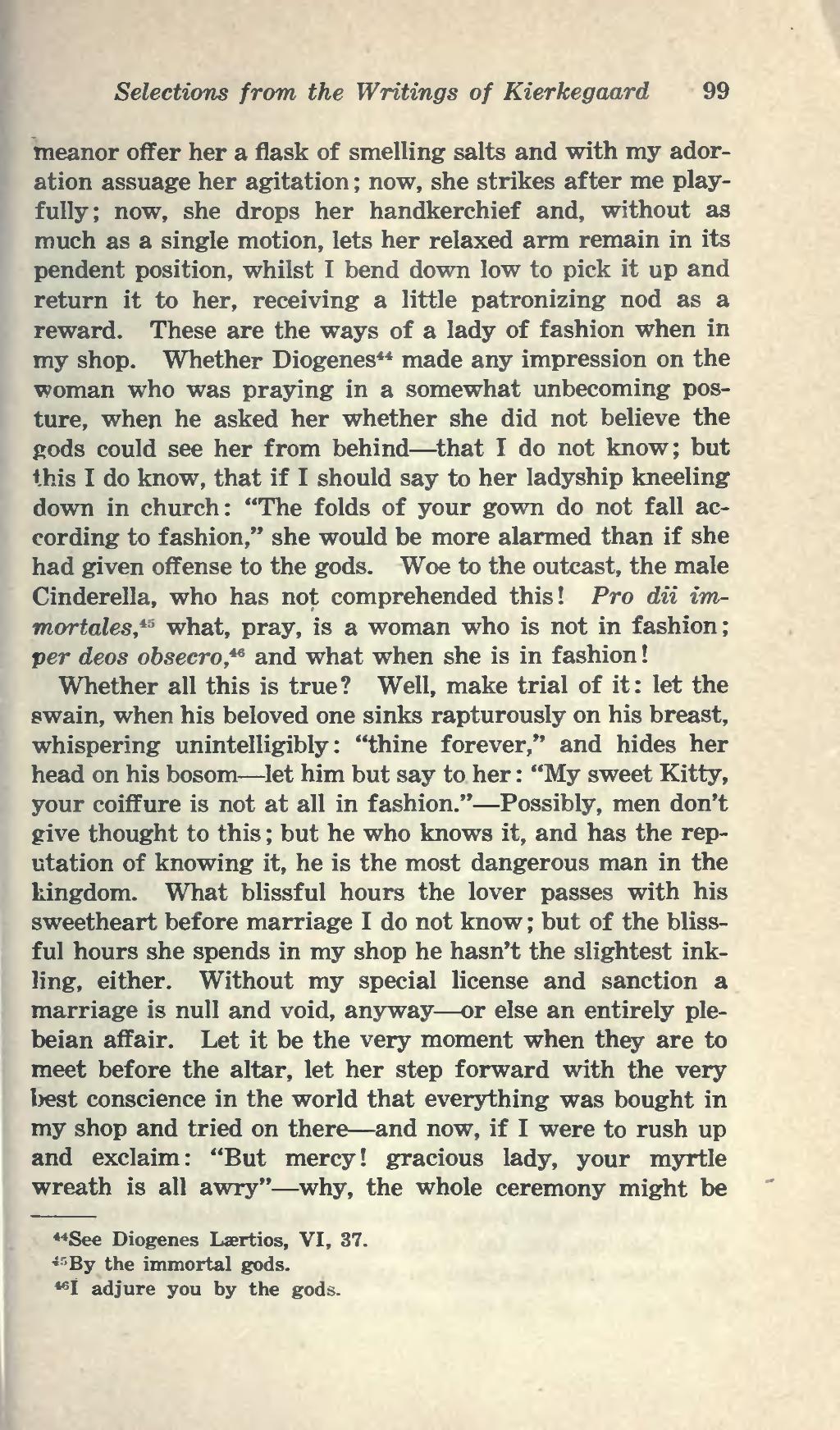meanor offer her a flask of smelling salts and with my adoration assuage her agitation; now, she strikes after me playfully; now, she drops her handkerchief and, without as much as a single motion, lets her relaxed arm remain in its pendent position, whilst I bend down low to pick it up and return it to her, receiving a little patronizing nod as a reward. These are the ways of a lady of fashion when in my shop. Whether Diogenes[1] made any impression on the woman who was praying in a somewhat unbecoming posture, when he asked her whether she did not believe the gods could see her from behind — that I do not know; but this I do know, that if I should say to her ladyship kneeling down in church: "The folds of your gown do not fall according to fashion," she would be more alarmed than if she had given offense to the gods. Woe to the outcast, the male Cinderella, who has not comprehended this! Pro dii immortales,[2] what, pray, is a woman who is not in fashion; per deos obsecro,[3] and what when she is in fashion!
Whether all this is true? Well, make trial of it: let the swain, when his beloved one sinks rapturously on his breast, whispering unintelligibly: "thine forever," and hides her head on his bosom — let him but say to her: "My sweet Kitty, your coiffure is not at all in fashion." — Possibly, men don't give thought to this; but he who knows it, and has the reputation of knowing it, he is the most dangerous man in the kingdom. What blissful hours the lover passes with his sweetheart before marriage I do not know; but of the blissful hours she spends in my shop he hasn't the slightest inkling, either. Without my special license and sanction a marriage is null and void, anyway — or else an entirely plebeian affair. Let it be the very moment when they are to meet before the altar, let her step forward with the very best conscience in the world that everything was bought in my shop and tried on there — and now, if I were to rush up and exclaim: "But mercy! gracious lady, your myrtle wreath is all awry" — why, the whole ceremony might be
